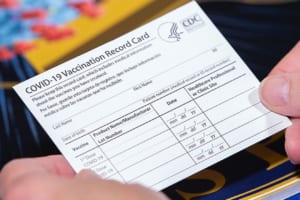 U.S. Citizenship and Immigration Services (“USCIS”) announced it is changing the way it will process Form I-526, Immigrant Petition by Alien Investor, moving from a first-in, first-out basis to a visa availability approach. The Form I-526 Petition is filed by someone wanting to immigrate to the U.S. via the EB-5 immigrant investor visa category.
U.S. Citizenship and Immigration Services (“USCIS”) announced it is changing the way it will process Form I-526, Immigrant Petition by Alien Investor, moving from a first-in, first-out basis to a visa availability approach. The Form I-526 Petition is filed by someone wanting to immigrate to the U.S. via the EB-5 immigrant investor visa category.
“Changing our approach from a first-in, first-out adjudication process to one that prioritizes petitions connected to individuals from countries where visas are currently available better aligns the EB-5 program with congressional intent and makes it more consistent with other USCIS operations,” said USCIS Deputy Director Mark Koumans. “This new approach increases fairness, allowing qualified EB-5 petitioners from traditionally underrepresented countries to have their petitions approved in a more timely fashion to receive consideration for a visa.”
According to USCIS, this operational change is consistent with the agency’s processing of Form I-130, Petition for Alien Relative, in visa cap-subject categories. The new visa availability approach gives priority to petitions where visas are immediately available, or soon available. Applicants from countries where visas are immediately available will now be better able to use their annual per-country allocation of EB-5 visas.
The new approach will apply to petitions pending as of the effective date of the change. USCIS will implement the visa availability approach on March 31, 2020.
If you have questions about this policy change or the EB-5 visa category, contact us at:








